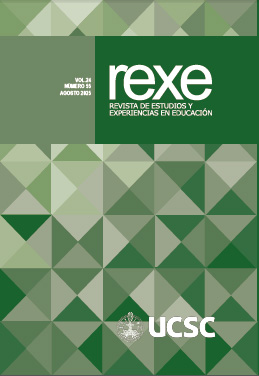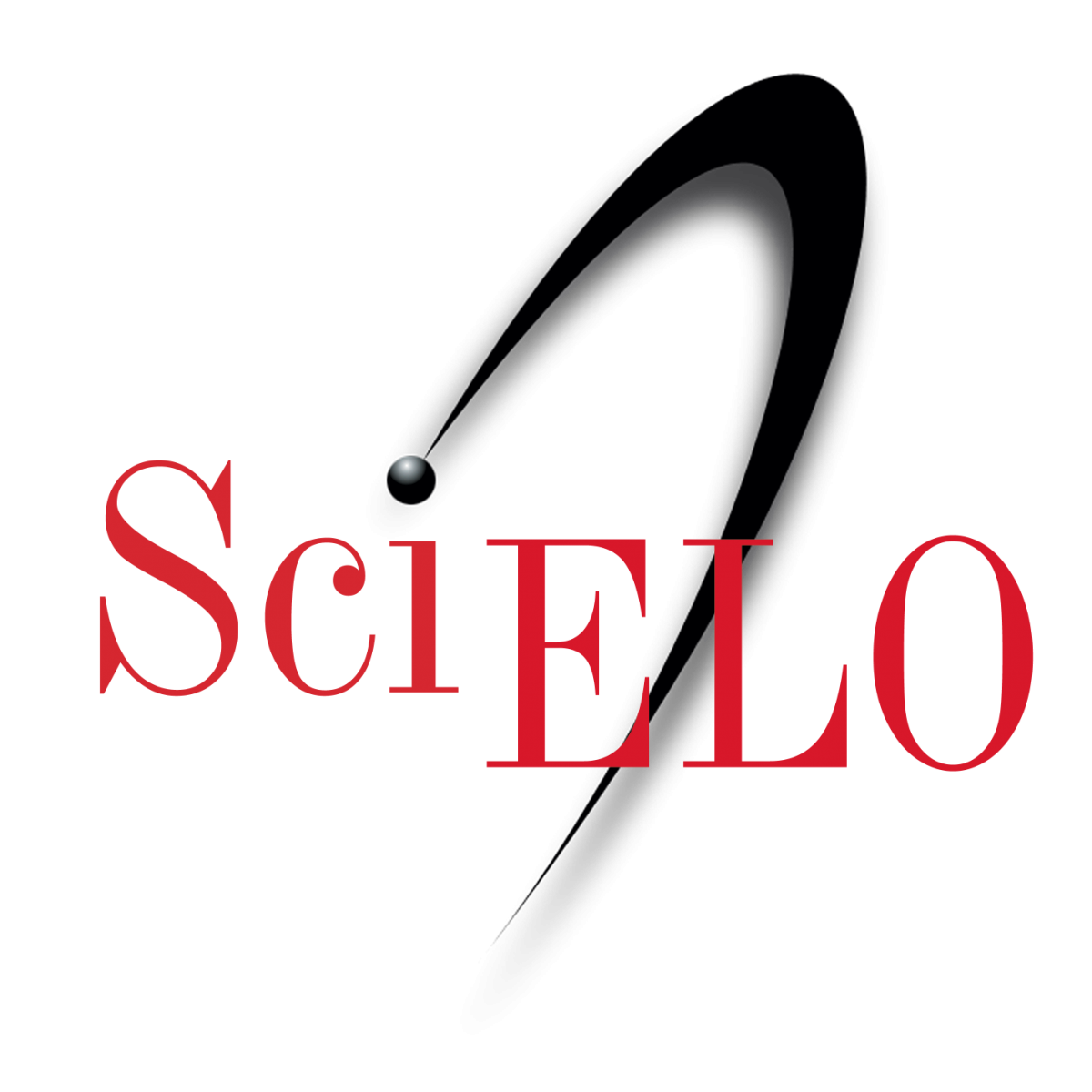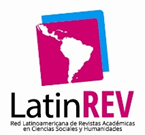Teachers' perceptions of online and hybrid teaching in the post-pandemic context in Brazilian higher education
DOI:
https://doi.org/10.21703/rexe.v24i55.2842Keywords:
Online teaching, Hybrid teaching, Digital information and communication technologies, Public university, Post-pandemicAbstract
The COVID-19 pandemic, which began in 2020, had a significant impact on university education, driving the use of digital technologies to ensure the continuity of teaching. This study aimed to understand teachers' perceptions of these modalities in the postpandemic context at a public university in the state of Mato Grosso do Sul, Brazil. The results indicate that before the pandemic, 57% of teachers did not use online or hybrid teaching methods. After the pandemic, 50% began to adopt these practices, although there is still significant resistance, mainly due to lack of training and technological challenges. The data indicate a preference for hybrid learning, combining face-to-face and online teaching. Most teachers consider online teaching more challenging and believe that student performance is better in face-to-face teaching. The advantages of online teaching include the possibility of inviting speakers from different locations and the availability of multimedia resources, while the disadvantages include lack of engagement and technological barriers. It is concluded that the pandemic catalyzed the adoption of online and hybrid methods, although there is still resistance due to lack of training and technological challenges. Continuing education for teachers, improvement of technological infrastructure, and exploration of AI are recommended to overcome these barriers. The study highlights the need for educational policies that promote a more resilient and inclusive model in post-pandemic higher education.
Downloads
References
Anderson, T. (2008). The theory and practice of online learning. Athabasca University Press.
Baker, R. S., y Inventado, P. S. (2014). Educational Data Mining and Learning Analytics. En JA Larusson & B. White (Eds.), Learning Analytics: From Research to Practice (pp. 61-75).
Baran, E., y Correia, A. P. (2014). A professional development framework for online teaching. TechTrends, 58(5), 95-101. https://doi.org/10.1007/s11528-014-0791-0
Bates, A. W. (2015). Teaching in a digital age: Guidelines for designing teaching and learning. BCcampus.
Bates, A. T. (2005). Technology, e-learning and distance education. Routledge.
Bernard, R. M., Borokhovski, E., Schmid, R. F., Tamim, R. M., y Abrami, P. C. (2014). A meta-analysis of blended learning and technology use in higher education: From the general to the applied. Journal of Computing in Higher Education, 26, 87-122. https://doi.org/10.1007/s12528-013-9077-3
Bland, C. J., y Schmitz, C. C. (1986). Characteristics of the successful researcher and implications for faculty development. Academic Medicine, 61(1), 22-31.
Boyer, E. L. (1990). Scholarship reconsidered: Priorities of the professoriate. Princeton, NJ: Carnegie Foundation for the Advancement of Teaching.
Bozkurt, A., y Sharma, R. C. (2020). Emergency remote teaching in a time of global crisis due to CoronaVirus pandemic. Asian Journal of Distance Education, 15(1), i-vi. https://doi.org/10.5281/zenodo.3778083
Clark, R. C., y Mayer, R. E. (2016). E-learning and the science of instruction: Proven guidelines for consumers and designers of multimedia learning. John Wiley & Sons.
Center, P. R. (2010). Millennials: A portrait of generation next. Confident, Connected, Open to Change. Washington.
Dixson, M. D. (2010). Creating effective student engagement in online courses: What do students find engaging? Journal of the Scholarship of Teaching and Learning, 1-13.
Garfield, E. (1980). "Premature discovery" or delayed recognition—why. Current Contents, 21(33), 5-10.
Garrison, D. R., y Kanuka, H. (2004). Blended learning: Uncovering its transformative potential in higher education. The internet and higher education, 7(2), 95-105. https://doi.org/10.1016/j.iheduc.2004.02.001
Graham, C. R. (2006). Blended learning systems. The handbook of blended learning: Global perspectives, local designs, 1, 3-21.
Graham, C. R. (2013). Emerging practice and research in blended learning. In: Moore, M. G. (Org). Handbook of distance education, (pp. 351-368). Routledge.
Hargittai, E. (2010). Digital na (t) ives? Variation in internet skills and uses among members of the “net generation”. Sociological inquiry, 80(1), 92-113. https://doi.org/10.1111/j.1475-682X.2009.00317.x
Harasim, L. (2017). Learning theory and online technologies. Routledge.
Hodges, C., Moore, S., Lockee, B., Trust, T., y Bond, A. (2020). The difference between emergency remote teaching and online learning. Educause Review, 27.
Holanda, V. R. D., Pinheiro, A. K. B., y Pagliuca, L. M. F. (2013). Aprendizagem na educação online: análise de conceito. Revista Brasileira de Enfermagem, 66, 406-411. https://doi.org/10.1590/S0034-71672013000300016
Holmes, W., Bialik, M., y Fadel, C. (2019). Artificial intelligence in education promises and implications for teaching and learning. Center for Curriculum Redesign.
Horn, M. B., Staker, H., y Christensen, C. (2015). Blended: usando a inovação disruptiva para aprimorar a educação. Penso Editora.
Hunter, J. (2015). Technology integration and high possibility classrooms: Building from TPACK. Routledge.
Johnson, N., Veletsianos, G., y Seaman, J. (2020). US Faculty and Administrators' Experiences and Approaches in the Early Weeks of the COVID-19 Pandemic. Online learning, 24(2), 6-21. https://doi.org/10.24059/olj.v24i2.2285
Kuh, G. D. (2009). The national survey of student engagement: Conceptual and empirical foundations. New directions for institutional research, 141, 5-20.
Means, B., Toyama, Y., Murphy, R., y Baki, M. (2013). The effectiveness of online and blended learning: A meta-analysis of the empirical literature. Teachers college record, 115(3), 1-47. https://doi.org/10.1177/016146811311500307
Moore, M. G., Dickson-Deane, C., y Galyen, K. (2011). e-Learning, online learning, and distance learning environments: Are they the same? The Internet and Higher Education, 14(2), 129-135. https://doi.org/10.1016/j.iheduc.2010.10.001
Moran, J. (2015). Educação híbrida: um conceito-chave para a educação, hoje. Ensino híbrido: personalização e tecnologia na educação. Porto Alegre: Penso, 3(1).
Palma-Troncoso, M., Vallejos-Gómez, R. M., y Urra-Barra, G. (2024). Ser profesor en entornos virtuales: desafíos y demandas post pandemia a la formación inicial docente. Una aproximación desde la evaluación de futuros profesores y mentores. Revista de Estudios y Experiencias en Educación, 23(51), 197-212. http://dx.doi.org/10.21703/rexe.v23i51.2156
Picciano, A. G. (2021). Theories and frameworks for online education. A guide to administering distance learning, 21(3), 166-190.
Rapanta, C., Botturi, L., Goodyear, P., Guàrdia, L., y Koole, M. (2020). Online university teaching during and after the Covid-19 crisis: Refocusing teacher presence and learning activity. Postdigital Science and Education, 2(3), 923-945. https://doi.org/10.1007/s42438-020-00155-y
Rodrigues, S. A., Sarnighausen, V. C. R., Dal Pai, A., Sgoti, R. F., y Sutili, F. K. (2023). Percepções de discentes em engenharia sobre as atividades remotas do início da pandemia Covid-19. REXE: Revista de Estudios y Experiencias en Educación, 22(50), 176-198. https://doi.org/10.21703/rexe.v22i50.1763
Rodríguez Guardado, M. D. S. (2022). Necesidades docentes durante la pandemia por COVID-19 en educación remota de emergencia. Revista de Estudios y Experiencias en Educación, 21(47), 185-199. https://doi.org/10.21703/0718-5162202202102147010
Rovai, A. P. (2002). Sense of community, perceived cognitive learning, and persistence in asynchronous learning networks. The Internet and Higher Education, 5(4), 319-332. https://doi.org/10.1016/S1096-7516(02)00130-6
Selwyn, N. (2016). Education and technology: Key issues and debates. Bloomsbury Publishing.
Selwyn, N. (2004). Reconsidering political and popular understandings of the digital divide. New media y society, 6(3), 341-362. https://doi.org/10.1177/1461444804042519
Selwyn, N. (2019). Should robots replace teachers?: AI and the future of education. John Wiley & Sons.
Silva, M. (2003). Educação online: teorias, práticas, legislação, formação corporativa. Edições Loyola.
Silva, M. (2018). Sala de aula interativa: educação, comunicação, mídia clássica. São Paulo: Loyola.
Silva, L. C. S. (2024). Gestión de la transferencia de tecnología para la innovación en las universidades públicas brasileñas. Revista Iberoamericana de Educación, 95(1), 17-40. https://doi.org/10.35362/rie9516201
Silva, L. C. S., Riedo, I. G., Mendonça, J. C. A., Nobre, L. B. O., & Maioli, S. F. V. (2024). Understanding smart cities: a systematic review. Revista de Administração da UFSM, 17, e7. http://dx.doi.org/10.5902/1983465973468
Silva, L. C. S., de Oliveira Lima, V., Caldeira, R. T., Zaparoli, D., y Pessoa, D. L. R. (2023). Perspectivas e possibilidades do ensino híbrido na educação superior no contexto pós-pandemia Covid-19 no Brasil. Revista de Gestão e Secretariado, 14(5), 7787-7808. https://doi.org/10.7769/gesec.v14i5.2151
Strauss, W., y Howe, N. (1991). Generations: The History of America's Future, 1584 to 2069. New York: William Morrow & Company.
Vaughan, N. D., Cleveland-Innes, M., y Garrison, D. R. (2013). Teaching in blended learning environments: Creating and sustaining communities of inquiry. Athabasca University Press.
VanLehn, K. (2011). The relative effectiveness of human tutoring, intelligent tutoring systems, and other tutoring systems. Educational psychologist, 46(4), 197-221. https://doi.org/10.1080/00461520.2011.611369
Warschauer, M. (2004). Technology and social inclusion: Rethinking the digital divide. MIT press.
Downloads
Published
Issue
Section
License
Copyright (c) 2025 Luan Carlos Santos Silva, Marcia Danieli Szeremeta Spak, Valdimeire de Oliveira Lima

This work is licensed under a Creative Commons Attribution 4.0 International License.
Open Access Policy
This journal provides immediate open access to its content, based on the principle that offering the public free access to research fosters greater global knowledge exchange.
License
The REXE Journal, “Journal of Studies and Experiences in Education,” published by the Faculty of Education at the Universidad Católica de la Santísima Concepción, is distributed under a License. Creative Commons Atribución 4.0 Internacional.






